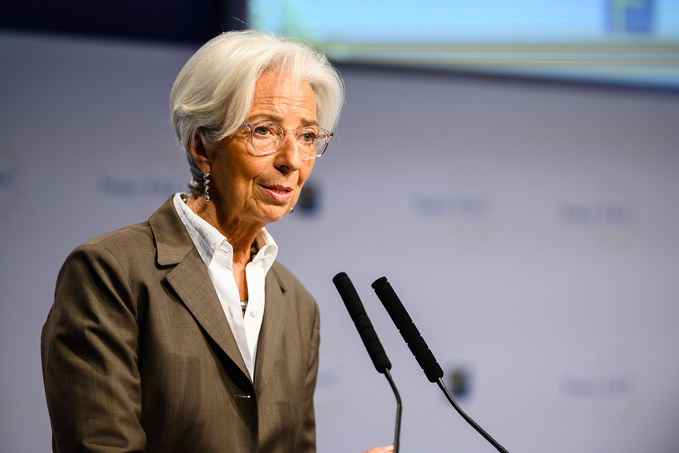During a meeting on April 17, the ECB cut the deposit rate, which sets the trajectory of monetary policy, by 25 basis points (b. p.), reaching its lowest level since the end of 2022, at 2.25%. The prime rate, the rate banks use to borrow from the ECB, and the marginal lending rate, the rate for overnight loans, were both lowered by 25 b.p. and are currently 2.4% and 2.65% respectively.
The ECB, as stated by Christine Lagarde, chose to bolster business operations amid "unprecedented uncertainty." In recent years, the euro zone economy has shown increased resilience to global disruptions, yet its growth outlook has worsened due to trade tensions, as stated by the regulator. The ECB anticipates that the escalation of trade tensions will lead to a decrease in confidence among businesses and households.
As stated by Christine Lagarde, the ECB opted to back business activity in the face of "extraordinary uncertainty." The euro zone economy has grown increasingly resilient to global shocks in recent years, yet its growth outlook has worsened due to trade tensions, as stated by the regulator. The ECB anticipates that, because of heightened trade tensions, confidence among businesses and households will decrease.
In March, the manufacturing sector's PMI in Europe reached its highest level in two years at 48.6 points; however, it remains below the 50-point threshold that distinguishes growth from recession. Concurrently, the output sub-index increased to 50.5 points - nearing a three-year peak. Christine Lagarde stated that the euro zone economy probably expanded in the first quarter, partly due to manufacturing “exhibiting signs of stabilization.”
Nonetheless, there are currently increased risks for a slowdown in economic growth: the rising caution among consumers could lead to a drop in demand. It is important to highlight that eurozone consumers tended to save instead of spend during uncertain conditions even prior to the onset of the trade war.
source: ecb.europa.eu
The ECB, as stated by Christine Lagarde, chose to bolster business operations amid "unprecedented uncertainty." In recent years, the euro zone economy has shown increased resilience to global disruptions, yet its growth outlook has worsened due to trade tensions, as stated by the regulator. The ECB anticipates that the escalation of trade tensions will lead to a decrease in confidence among businesses and households.
As stated by Christine Lagarde, the ECB opted to back business activity in the face of "extraordinary uncertainty." The euro zone economy has grown increasingly resilient to global shocks in recent years, yet its growth outlook has worsened due to trade tensions, as stated by the regulator. The ECB anticipates that, because of heightened trade tensions, confidence among businesses and households will decrease.
In March, the manufacturing sector's PMI in Europe reached its highest level in two years at 48.6 points; however, it remains below the 50-point threshold that distinguishes growth from recession. Concurrently, the output sub-index increased to 50.5 points - nearing a three-year peak. Christine Lagarde stated that the euro zone economy probably expanded in the first quarter, partly due to manufacturing “exhibiting signs of stabilization.”
Nonetheless, there are currently increased risks for a slowdown in economic growth: the rising caution among consumers could lead to a drop in demand. It is important to highlight that eurozone consumers tended to save instead of spend during uncertain conditions even prior to the onset of the trade war.
source: ecb.europa.eu



















